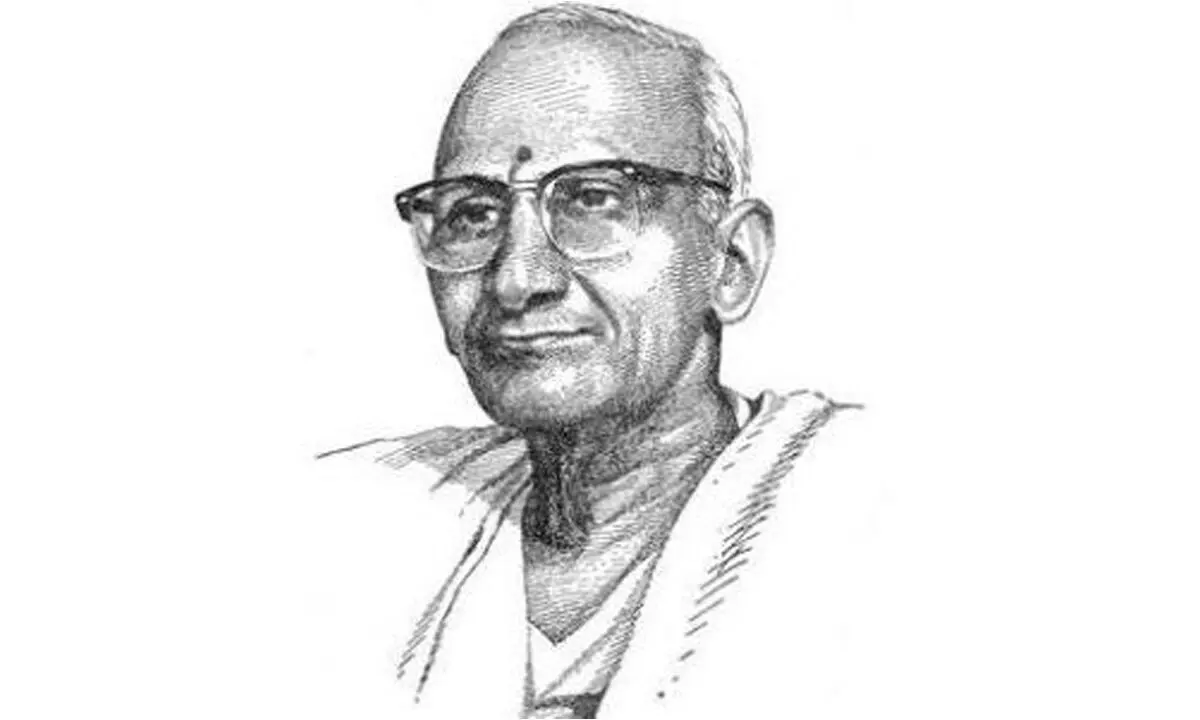Where a river bursts into poetic lyrical ballad

Flowing off about 20 km away from Karimnagar, the Mohi Tummeda, a small tributary of Manair River had stirred the poetic heart of one of the great Telugu poets.
Hyderabad: Flowing off about 20 km away from Karimnagar, the Mohi Tummeda, a small tributary of Manair River had stirred the poetic heart of one of the great Telugu poets.
Added to it, a friendship with a great musician left an indelible mark on him to come up with a unique novel of about 600 pages, titled ‘Mroyu Tummeda’ (The Humming Bee).
It is considered one of the best novels of Kavisamrat Viswanatha Satyanarayana. He, along with his friend and a great musician of his time, P Narayana Rao, from Karimnagar, delved into the origins and development of Hindustani musical tradition, sound and its relation to consciousness in the novel.
Though the novel has a wide canvas, "various characters and places in it revolve in and around Karimnagar and the rural areas of the district, taking Telugu readers on a different kind of literary journey, says Ayyadevarla Anand, a retired librarian, who had worked at the S R R Government Arts and Science College, Karimnagar, where the poet once worked as the principal of the college.
During his short stint as the principal, besides Mohi Tummeda, another beautiful stream known as Kinnerasani in Khammam district of Telangana had endeared Viswanatha’s poetic heart.
While Mohi Tummeda has an intellectual canvas to it, Viswanatha's Kinnerasani Patalu (songs of Kinnerasani) remained a “spontaneous overflow of powerful feelings” taking “their origin from the emotion recollected in tranquility” of a poet in him, as the famous English poet William Wordsworth says.
That apart, the Jnanpith awardee also had the unique distinction of talking about the dance tradition of Kuchipudi, while his characters unveiled a story of the struggle of hearts in love ending up in melancholy in his novel 'Eka Veera' as well as through the devout and divine dance girl character of Girika, in his famous ‘Veyipadagalu’ (Thousand Hoods).
He was held in high esteem for his works on varied subjects. For example, his 'Purana Vira Grandha Mala' sets the stage to narrate the battle between the good and bad throughout history. But, what runs through the series of 12 novels introduces the readers to the social, historical, and political dimensions of various stages in Indian history from the natives’ point of view.
Viswanatha was known as a poet and novelist with a steel nerve who espoused the cause of the traditional school of poetry and literature. However, his stand and contribution to the Telugu poetry and literature could be summed up best in the words of William Wordsworth, who once said: “Life is divided into three terms- that which was, which is, and which will be. Let us learn from the past to profit by the present, and from the present, to live better in the future.”














